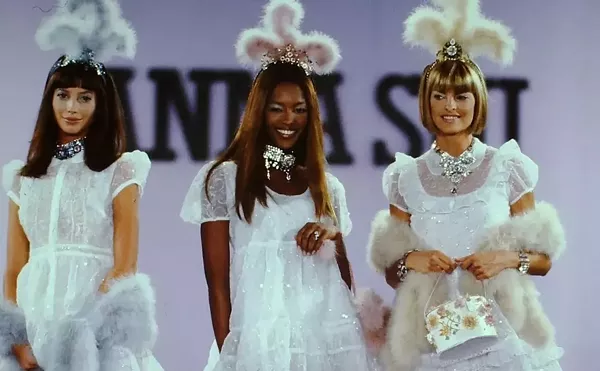Broadway Bound is the third in Simon's trilogy of autobiographical comedies, following Brighton Beach Memoirs and Biloxi Blues. This time out, aspiring comedy writers Eugene (Michael Kary) and Stanley (Jason Kuykendall) have been given their first big break writing radio sketches for CBS, while their parents, Kate (Janet Arnold) and Jack (Mark DeMichele), are watching their marriage of 33 years fall apart. Meantime, their grouchy socialist grandfather, Ben (Kim Bennett), is refusing to move to Florida with his ailing wife, who won't survive another Eastern winter.
Broadway Bound is both Simon's darkest play and a testimony to his failure to transition easily from laugh-without-thinking comedy to more serious drama without detouring into outright melodrama. He relies on old comedy tricks and messes up several moving monologues with ill-placed laugh lines. The long-term effect is that Simon aborts what could have been a real breakthrough by our most famous living American playwright. A pair of pivotal speeches is wrecked by these routine jokes. In one scene, Kate delivers a long, emotional monologue about her grandparents' immigration to America that ends with a punch line about the Statue of Liberty; in another, Jack assures Kate that there is no other woman in his life, to which she replies, after pausing a beat, "Well, why not?" Simon may be cutting the pathos with humor, but he's also robbing these scenes of any real impact.
Still, there are some successful dramatic moments, most of them in the energetic second act. When the family gathers to listen to Eugene and Stanley's first radio broadcast, we're treated to the usual Simonesque comedy patter, but it's balanced by a tirade from Jack, who accuses his sons of plundering people's privacy for gags. Later, in an oddly intimate moment, Eugene dances with his mother while she recalls a sexy story from her past.
Like all of his plays, Simon's focus is too narrow. We don't find out enough about the interesting people in this play--like Eugene, and Ben, the only new character here--and are left instead with people who are unfulfilled but determined to be funny about it. I found myself more interested in the offstage characters: Eugene's girlfriend, who leaves her fiance to be with Eugene; his grandmother, who lives apart from her husband and eventually moves to Florida, where it's warmer; and Blanche, Kate's wealthy sister, who lives on Park Avenue and has a chauffeur and a mink but would rather have her father's love.
Blanche actually appears in one scene, though it's a throwaway and could easily be cut from the play. She's with us only long enough to throw a tantrum and wave a fur coat around, but actress Robyn Allen plays this scene for all it's worth, and her speech reverberates with all the rage and passion that her sister, Kate, never musters.
That's partly because Arnold's interpretation of Kate is so bland and inconsistent. She's effective in the scene where she dances with her son, and in an earlier moment where she explains the significance of her family's dining room table. The rest of the time, she's flat and uninteresting and misses out on a great opportunity to play a woman whose life has been wasted on a single memory.
DeMichele attempts to make something of Jack, but there's little for him to work with. He underplays admirably, but Jack is a dull, tired man trapped in a Neil Simon script, where everyone is at least colorful and almost always funny. Kim Bennett fares better. His smart performance as Ben is all the more impressive when one realizes that Bennett is several decades younger than this cranky old man, yet he handles the role without those tired "old man-isms" that actors tend to bring to similar parts. But the play really belongs to Kuykendall and Kary, who each turn in varied, well-formed performances. The pair play off one another with great enthusiasm, conveying the kind of competitive, caring relationship of two young brothers about to make it big.
Simon has made noises about how Broadway Bound is the final chapter in his autobiographical cycle, but the trilogy only brings Eugene (read: Simon) into his early 20s. This worries me, because it suggests that Simon may trouble us with another series that explores his middle age or (horrors!) his dotage. If he does, let's hope he either hews to his standard sitcom formula or attempts a dead-on drama--anything other than the fence-sitting that Broadway Bound, even in this mostly admirable production, brings to the stage.
Broadway Bound continues through Sunday, June 14, in Stage West at Herberger Theater Center, 222 East Monroe. For more information, see the Stages listing.











